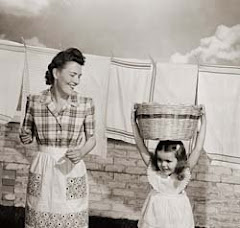True courage to stand for what is right. Heroes who will engage in combat with an enemy, not another family member.
"People may dount what you say, but they will always believe what you do."
Elite IDF Soldiers Refuse Hevron Expulsion Orders
by Hana Levi Julian
(IsraelNN.com) Two officers and 10 soldiers were sentenced Monday night to 28 days in an army jail for refusing to participate in the expulsion of Jews from their homes in the former Hevron marketplace. The site is known as the Shalhevet neighborhood, named after 10-month-old Shalhevet Pass, who was murdered by a Palestinian Authority sniper several years ago.
The original group of 30 soldiers, all hesder yeshiva members of the elite Duchifat combat unit, balked when they were given their orders to replace Border Police officers during the expulsion. They told their commander before boarding an army bus bound for duty in Judea and Samaria that they would refuse to carry out the orders.
Under threats of a severe response by their commanding officer, more than half of the group backed down, but 12 continued to refuse to obey the order to forcibly evacuate the two families, including 14 children, from their homes.
In addition to their 28-day sentence in a military jail, the battalion commander, Col. Itai Virov, also demoted the soldiers from serving in a combat unit. The sentences are lighter than the active jail time called for by many left-wing politicians. Soldiers who refused orders during the Disengagement were often allowed to return to their units later on.
IDF Central Commander Maj.-Gen. Gadi Shamni removed the two unit commanders and 10 other soldiers from their positions in the elite Duchifat unit after they refused to obey the orders. "This is a phenomenon that endangers the very base the IDF stands on," said Shamni. "This is an army of the people, and in a democratic nation soldiers must obey orders."
An unidentified father of one of the Duchifat soldiers who balked at carrying out the order stated “the soldiers are standing with determination in their refusal to participate in any part of the expulsion of Jewish families from Hevron.” Another father, Moshe Rosenfeld, said in an interview on Army Radio “My son didn’t join the army to expel Jews, but to defend them. Furthermore, this is not an operation for the army, but for the police.”
The Duchifat unit is a special counter-terrorism battalion in the Kfir Brigade of the IDF Central Command infantry division. The Kfir Brigade is the largest such unit in the IDF, and includes Netach Yehuda and Nachal Hareidi forces. Duchifat soldiers specialize in urban combat and usually operate in the Ramallah area, with the responsibility for the protection of Jewish communities which include Beit El, Ofra and others.
A number of the soldiers who refused to get on the bus are students of Rabbi Chaim Druckman, who guided them through the process.
NRP / NU Knesset member Tzvi Hendel stated flatly in another broadcast interview, “There is no limit to the stupidity of the government…. Just as a soldier must think before shooting at an Arab, so too should one should think here as well. I understand a soldier who says that he is unable to carry out this order,” he added.
“I am not talking about refusal. It’s not enough to simply say that you’re following orders. We are not a dictatorship….We are not talking about soldiers refusing to fight in a war, but in soldiers refusing to carry out a political operation, which is not the mission of the IDF.”
Peace Now Secretary Yariv Oppenheimer asserted, "The extreme right is trying to turn the army into a political game. The IDF should not lend a hand to these attempts." The extreme left-wing activist insisted that soldiers who refuse to follow orders to expel the two families from their homes should be arrested and face a court trial.
A spokesman for the Rabbinical Council of Judea and Samaria commented, “The army shouldn’t be drafting children of Judea and Samaria to throw their families out of their homes.” There were a number of such instances during the 2005 Disengagement operation, when more than 8,000 Jews were expelled from 25 vibrant communities in the Gush Katif region of Gaza, and northern Samaria.
Meretz Knesset member Avshalom Vilan said that refusing IDF orders not the purview of the soldiers and officers. “They are meant to carry them out,” he stated.
The IDF is set to deploy some 3,000 soldiers for the effort to expel the two families, including 14 children, from their homes on Tuesday. The former Hevron marketplace is adjacent to the Avraham Avinu neighborhood, from which nine families and a yeshiva were evicted a year and a half ago.
At that time, commander of Judea and Samaria forces IDF General Yair Golan convinced the families to leave, by promising that they would be allowed to return soon after with an improved legal status. The government reneged on the deal shortly thereafter when Attorney General Menachem Mazuz ruled that Golan did not have the authority to make the deal.
Four coalition Knesset members, three opposition Knesset members and two ministers signed a letter sent to Defense Minister Ehud Barak last week urging him to reconsider the order. "The residents in Hevron prevented a clash such as that in Amona when they removed themselves from their homes based on promises that they would be able to return," read the letter in part. "This approach must be encouraged, not put down."
Hevron officials say they are once again being promised that if they leave willingly a quiet return to the marketplace will be arranged in the future. A similar episode took place with the Beit Shapira House, wich remains sealed and empty to this day.“We've been through that one too many times,” said Hevron community spokesman David Wilder. “The property is Jewish property. A military appeals court recommended that the buildings be leased to the Hebron Jewish community. This too was rejected. What more do they want?”
In the aftermath of the War of Independence in 1948, Jordan occupied Hebron and gave control of the marketplace to the Custodian of Abandoned Properties.
The market was leased to the Hebron Municipality, which allowed the merchants to stay. That situation continued after Israel reclaimed the area in 1967.
Wilder continued, stating that it was “illogical to ask Jewish families to leave property that was owned by Jews, in the name of an empty marketplace that had not been operational for 13 years, and for which there was no plan to release to Palestinian merchants.”
Ze'ev Orenstein and Nissan Ratzlav-Katz contributed to this article.
NQJC Relaunch!
3 years ago















No comments:
Post a Comment